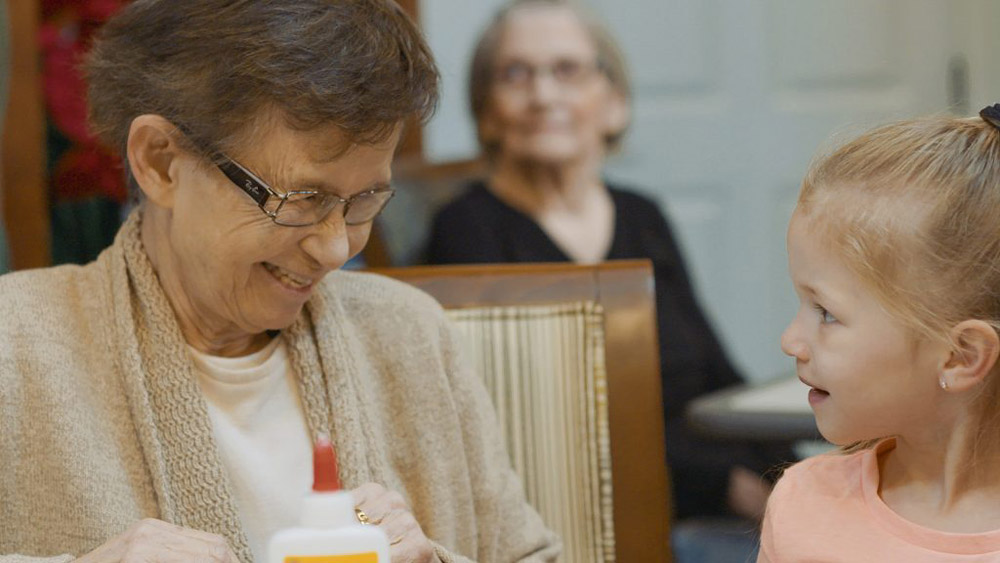5 Things You Should Know About Memory Care Facilities

Memory Care Facilities
Looking for long-term care for a loved one with memory loss can be a stressful experience.
How do you choose a residence or community?
What makes a facility a good facility?
Does your loved one need full-time care, or can you keep caring for him at home?
We understand the numerous questions that spouses, children, grandchildren, nieces, and nephews have running through their minds when they begin searching for good care for their loved ones.
One important thing to know from the beginning is what a memory care facility actually is.
Memory care in Lexington is not simply assisted living. While some assisted living centers have memory care units, those units will function differently from the assisted living portion. This is because people with memory loss issues, whether they have dementia or Alzheimer’s disease (which is a form of dementia), need specialized care. The Breckinridge is licensed as an assisted living facility as well as a memory care facility.
Because of this, memory care facilities and homes will look a little different from your typical long-term living facility.
As you begin your search for memory care for your loved one, following are five things you need to know about a good memory care facility.
5 Things You Should Know About A Good Memory Care Facility
1. It is not assisted living.
As we mentioned above, a memory care facility is different from a regular assisted living facility.
Residents of assisted living live and move about the facility as if it were an apartment complex or neighborhood. They don’t have regular check-ins from staff; they attend meals when they want and are often provided a flexible activities schedule from which they can pick and choose. This is because their cognitive function is decently intact, so they simply don’t need the level of care that memory loss residents do.
A Family Experience: Marsha Russell on finding the very best memory care facility for my dad
2. Staff are specially trained.
At The Breckinridge, we cater our staff training to dementia and Alzheimer’s disease residents. This means our staff is educated on these memory loss issues, how to assist a resident who has them, and even how to help improve memory loss and functioning. Any memory care community should have staff that is specially trained in these areas.
3. There are frequent check-ins from staff.
When you have a memory loss disease, you may forget to eat or drink or go to the bathroom. You will probably experience disorientation and not know where you are at times. You won’t understand why you can’t leave the facility whenever you want and why you’re not living in the house you used to live in. Because of this, staff at memory care facilities regularly check in on residents. They make sure they attend mealtimes regularly. They make sure they’re staying hydrated. They help with any incontinence issues and ensure that residents are socializing, exercising, and getting fresh air. This requires staff to keep a closer eye on residents and ultimately improves the quality of life for the residents while ensuring their safety.
Katrina Bailey, daughter of a resident – The importance of finding the best memory care facility
4. Activities and daily schedule are catered to memory loss.
Any assisted living facility will offer regular activities, such as bingo, and three meals a day, but a daily schedule at a memory care facility will look different. This is because people with memory loss have different needs in this area.
At The Breckinridge, we work in time blocks, rather than hours. This is because our residents often need more flexibility than a rigid schedule. We have four to five different time blocks for meals, blocks for physical activities and other activities. We allow the residents to decide what they need most that day rather than the schedule deciding for them.
For someone who lives in their long-term memory, which many people with memory loss do, this is incredibly helpful for their comfort and security and gives them a much-needed sense of independence.
5. They have a limited number of residents.
Memory care facilities usually have far fewer residents than a standard assisted living facility. This keeps the staff-to-resident ratio as high as possible, which is crucial since people with memory loss require extra care.
At The Breckinridge, we limit our home to just 24 residents at a time. We truly consider our residents our family and they consider each other family. Keeping this number low ensures residents can get to know one another and build relationships all while receiving the best care possible.




